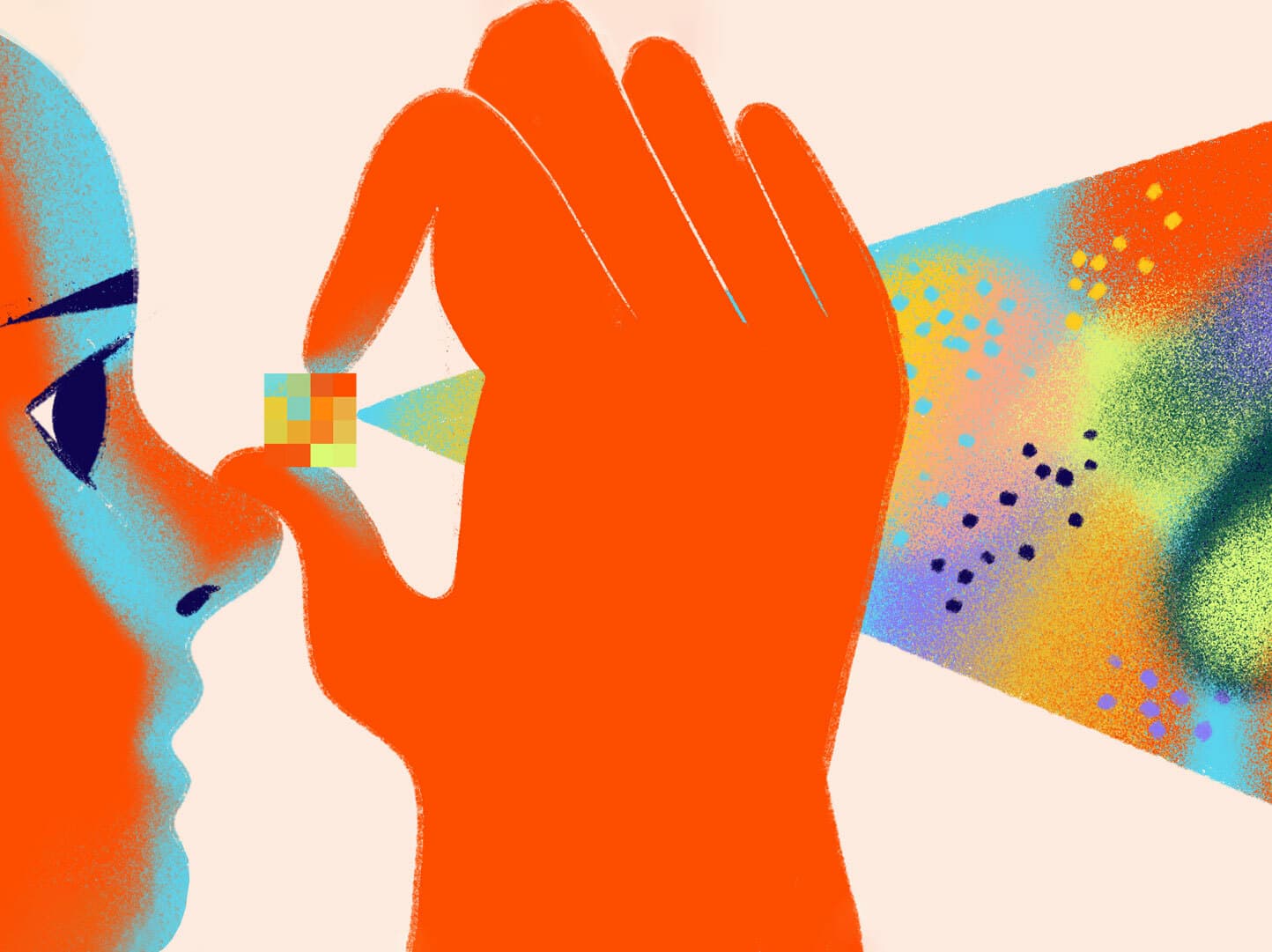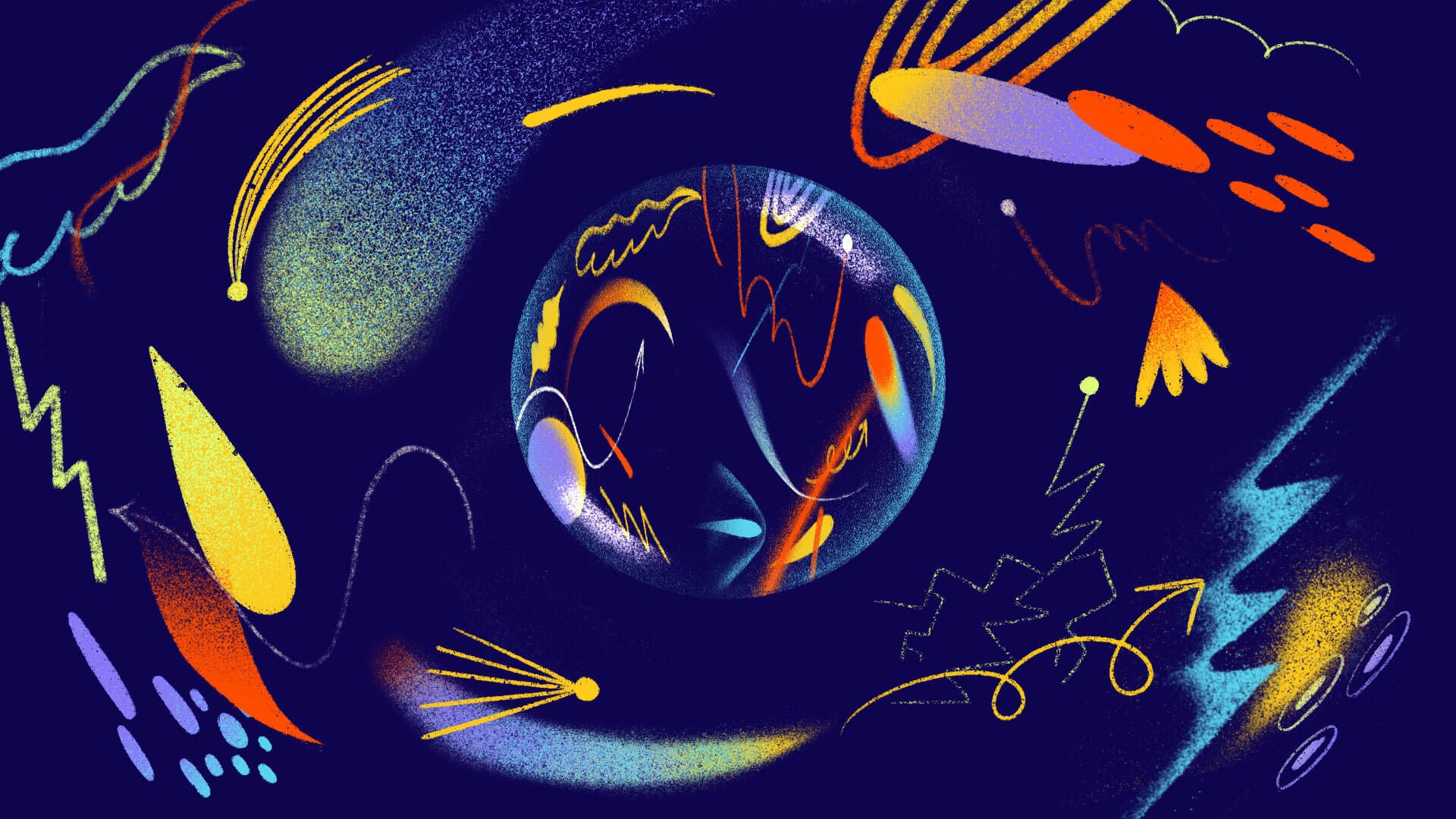The Courage to Be Better
In the face of a changing nonprofit world, improving what you do well can be more effective than becoming what you are not.
By Sruthi Sadhujan, Senior Strategy Director at Hyperakt
In a nonprofit sector experiencing rapidly shifting norms and rules, it takes courage to decide to be yourself rather than becoming something you are not.
As a brand strategist to nonprofits big and large, I’ve worked with many organizations facing mounting criticism. Leaders are caught in a maelstrom—to do more, to do less, to step up, to step down. To change, change, change. Under intense pressure to change radically and fast, organizations with little to no history of on-the-ground work are building out community engagement teams, wading into field organizing, and liberally using any and all terms that include the word “community.” But often, this new “proximate” posture lacks depth, commitment, and even expertise.

Illustration by Merit Myers
In my experience, these organizations are not trying to deceive anyone—they are simply doing their best to listen, learn, and respond at a time when most people can agree that change is overdue. When criticism is coming at you from all directions, from within your organization and without, at untenable speeds and volumes, it's easy to forget what you are good at and just do what everyone else is doing. Unfortunately, as the demands become maximalist and the stakes keep rising, discerning what is right and necessary for your specific organization is one of the hardest tasks at hand. Because change doesn’t and shouldn’t look the same for everyone.
Social movement ecology, a framework developed by the Ayni Institute, puts forward a theory that social movements are like natural ecosystems—a diverse collection of interdependent organisms (i.e. organizations, leaders, tactics, etc.) who each have unique strengths and unique roles to play. Healthy ecosystems thrive in their diversity. Homogeneous ones die.
The move towards sameness is undeniable. In my own work, I’ve encountered many organizations trying to incorporate community aspects to their work. But they are floundering because it’s a fundamental overextension of their strengths. Even anecdotally, every organization seems to be following the same playbook, trying to fashion themselves as “in community” with their end-beneficiaries, no matter how far removed they are from the people they hope to impact. We see institutional philanthropies attempting to build ties with communities, research organizations identifying as activists, and public interest legal entities foraying into community organizing.
Not every nonprofit has to work “on the front lines” or be an “activist organization” to be impactful. Not every nonprofit has to follow the same playbook to become equitable or effective.
Too often, we dismiss direct-service organizations for being naive (“you can’t make a dent by helping one person at a time”), research organizations for being distant (“your numbers don’t mean anything if they’re not rooted in lived experience”), and funding organizations for being power-hoarders (“you have too much of it and are only interested in preserving it”). There is no doubt that many organizations in our space need to seriously interrogate their ways of working.
In pushing for social change, we have to know the difference between asking organizations to be better versus asking them to become something they are not.
But our goal should not be to flatten the landscape into a collection of identical organizations taking identical approaches. Our goal should be to create a diverse array of more enlightened, equitable, and values-driven actors that tackle change in unique but coordinated ways.
Change is complex. It is fundamentally nonlinear, messy, and unpredictable. For this reason, the work of social change requires a proportionally complex and multifaceted approach. And this is where a variety of entities can play targeted and specific roles. Rather than trying to turn philanthropies into something they are not, let’s encourage them to lean into their unique strength: to bear the risk and make the big bets that other entities cannot. Rather than disparaging research organizations as ivory towers awash in numbers, let’s encourage them to harness data to tell new stories about the social issues we’ve been mired in for decades. Rather than dismissing mass mobilization and community organizing for their radical demands, let’s celebrate their unique ability to shift our collective perception of what is necessary and possible.
So if you are an organization at an inflection point, ready to take a leap but unsure of what kind of work is necessary, consider carefully: Are you being called on to be different or to be better? There is courage in making a sharp pivot if you feel your work has gone astray. There is also courage in staying the course, if what is needed is depth rather than a change of direction. And yet other times, in your quest to deepen, you may actually end up changing (or vice versa). In the end, the divide between being different and being better may not be as clear-cut as it first appeared.
Your lane is your zone of clarity, confidence, and courage. The most courageous change—whether that is staffing a new team or clarifying how you collect and interpret data—is the one that is rooted in your organization’s clearest and most confident sense of self.
At Hyperakt we view branding as a tool to help you determine the best course. Done well, the branding process helps your organization find radical clarity: who you are, who you need to be, and importantly, who you're not. By rediscovering the heart of your organization and your role in the ecosystem of change, your organization can move forward with the clearest and most confident sense of self. When you are clear on why you are here and what you have to contribute, you gain the trust and permission to act in ways that are game-changing. As Ralph Waldo Emerson said, “To be yourself in a world that is constantly trying to make you something else is the greatest accomplishment."


